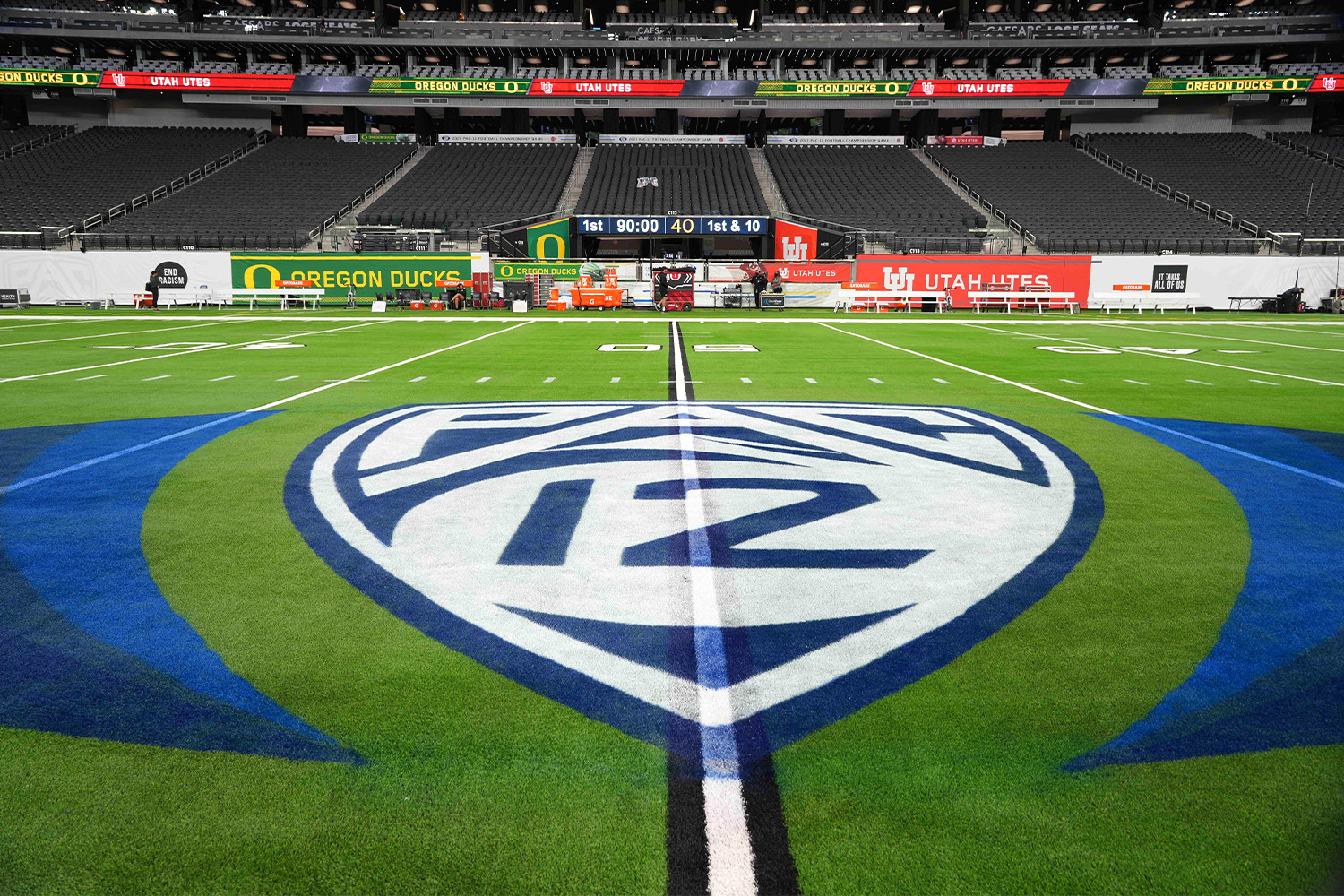Washington State and Oregon State earned a small but important win in their fight to save the Pac-12.
On Monday, a local judge forced the Pac-12 to cancel a Wednesday board meeting in which departing schools could have voted to disband the conference.
The temporary restraining order prevents any formal board meetings until the court resolves a dispute regarding which schools can participate in Pac-12 votes. Meanwhile, they can discuss matters related to the day-to-day operations of the conference.
The decision is part of a lawsuit that the two schools filed against the Pac-12 and commissioner George Kliavkoff over control of the conference.
“The court’s decision today protects the opportunity for Oregon State University and Washington State University to determine a meaningful path forward for the Pac-12,” Eric MacMichael, a lawyer for the schools, said in a statement.
Oregon State and Washington State claimed in court documents that the Pac-12’s bylaws state schools that have announced they will leave the conference immediately forfeit their ability to participate and vote on the Pac-12’s board. However, Kliavkoff had intended to include all members — including USC and UCLA, which hadn’t been part of Pac-12 board meetings since their announcement last summer.
Oregon State and Washington State are concerned that giving voting power to the 10 departing members wouldn’t just be a conflict of interest. If given the opportunity, departing members could vote to disband the conference altogether. That way, the 10 schools could each take an equal share of the Pac-12’s revenue and assets.
“WSU and OSU are working in lockstep to identify the best path forward,” Washington State president Kirk Schulz said in a statement on Friday. “The future of the Pac-12 must be determined by the remaining members, not by those who are leaving.”
Lawyers made conflicting claims over what would be on the agenda for the now-canceled meeting. But it appears the 10 departing schools were scheming to kill the Pac-12.
MacMichael said he received documents suggesting the Pac-12 was considering funding some of the transition costs for departing schools, which would not only be contrary to the conference’s interests, but also be utterly unheard of in college sports.
He also said the conference was considering amending the bylaws related to voting authority and what constitutes a conflict of interest, as well as an employee retention plan. (Pac-12 lawyer Mark Lambert said the conference has been “hemorrhaging employees.”)
Lambert also said the conference was only hoping to vote on a retention plan to “keep the lights on.”
The conference all but collapsed in August, when seven schools announced they would leave in 2024. Their decisions followed that of Colorado a week earlier, and USC and UCLA last June.
Since then, it’s been unclear whether there will be a Pac-12 in the future — its only pathways to survival would be if Oregon State and Washington State can rebuild, or if the Mountain West can retain them and the rights to the Pac-12 name.
Kliavkoff has reportedly not been part of Washington State and Oregon State’s discussions. He wasn’t even present in the hearing on Monday — the judge noted he was in Montana.
The next step will be a hearing for a preliminary injunction.







![[Subscription Customers Only] Jun 15, 2025; Seattle, Washington, USA; Botafogo owner John Textor inside the stadium before the match during a group stage match of the 2025 FIFA Club World Cup at Lumen Field.](https://frontofficesports.com/wp-content/uploads/2026/02/USATSI_26465842_168416386_lowres-scaled.jpg?quality=100&w=1024)
![[Subscription Customers Only] Jul 13, 2025; East Rutherford, New Jersey, USA; Chelsea FC midfielder Cole Palmer (10) celebrates winning the final of the 2025 FIFA Club World Cup at MetLife Stadium](https://frontofficesports.com/wp-content/uploads/2026/02/USATSI_26636703-scaled-e1770932227605.jpg?quality=100&w=1024)








